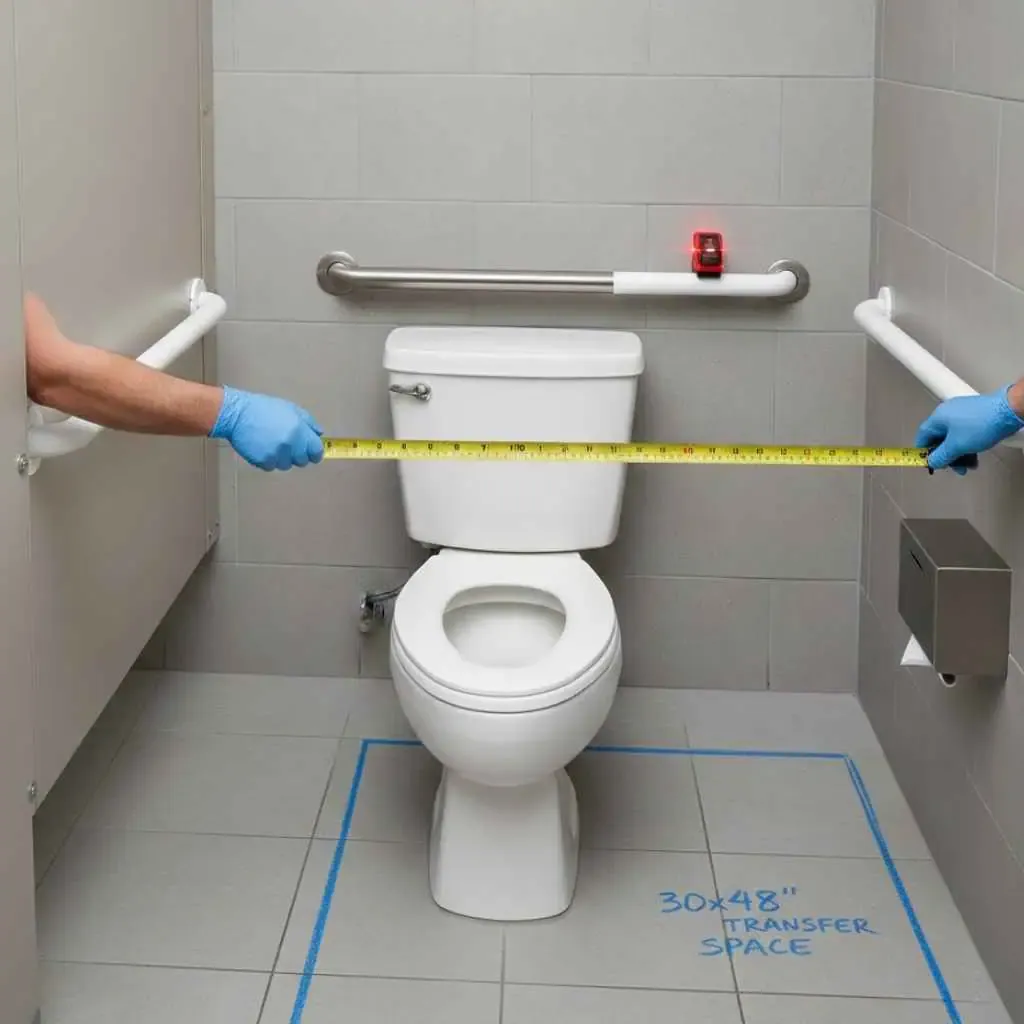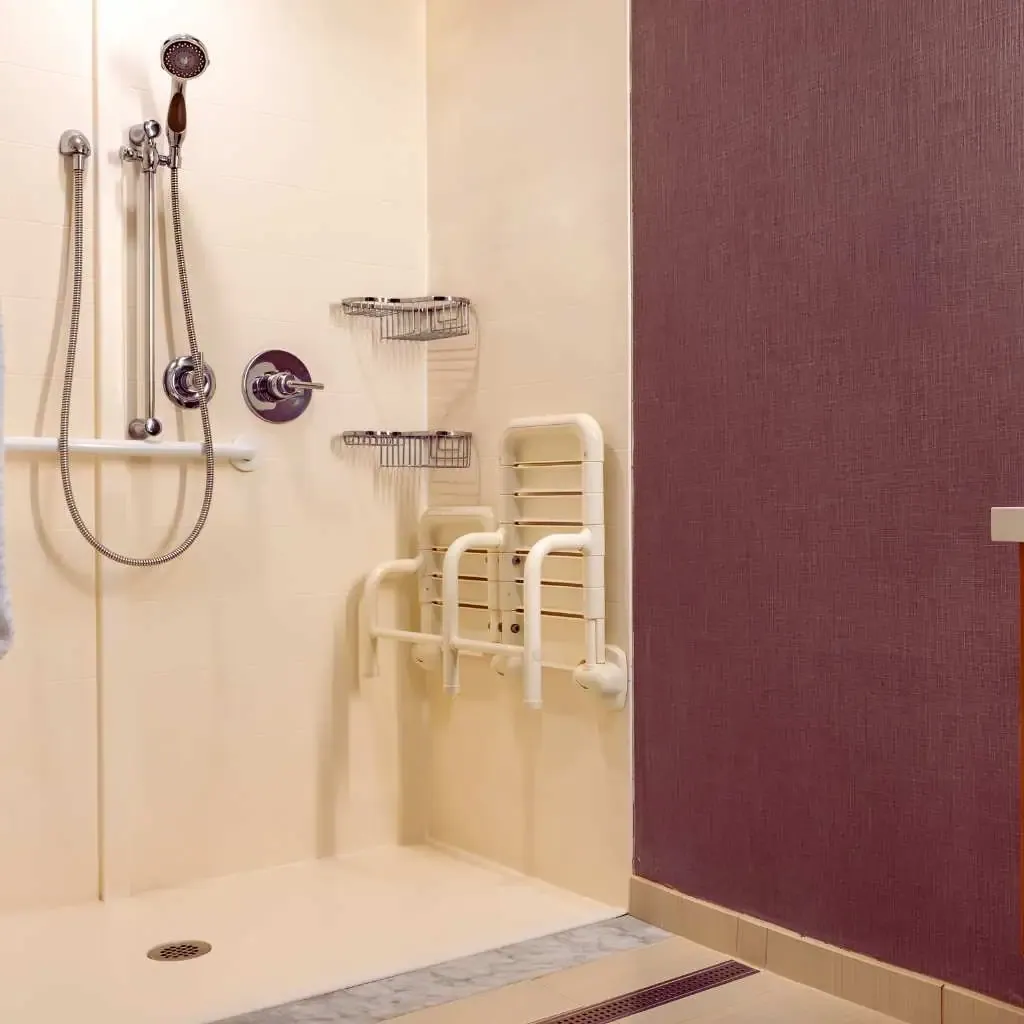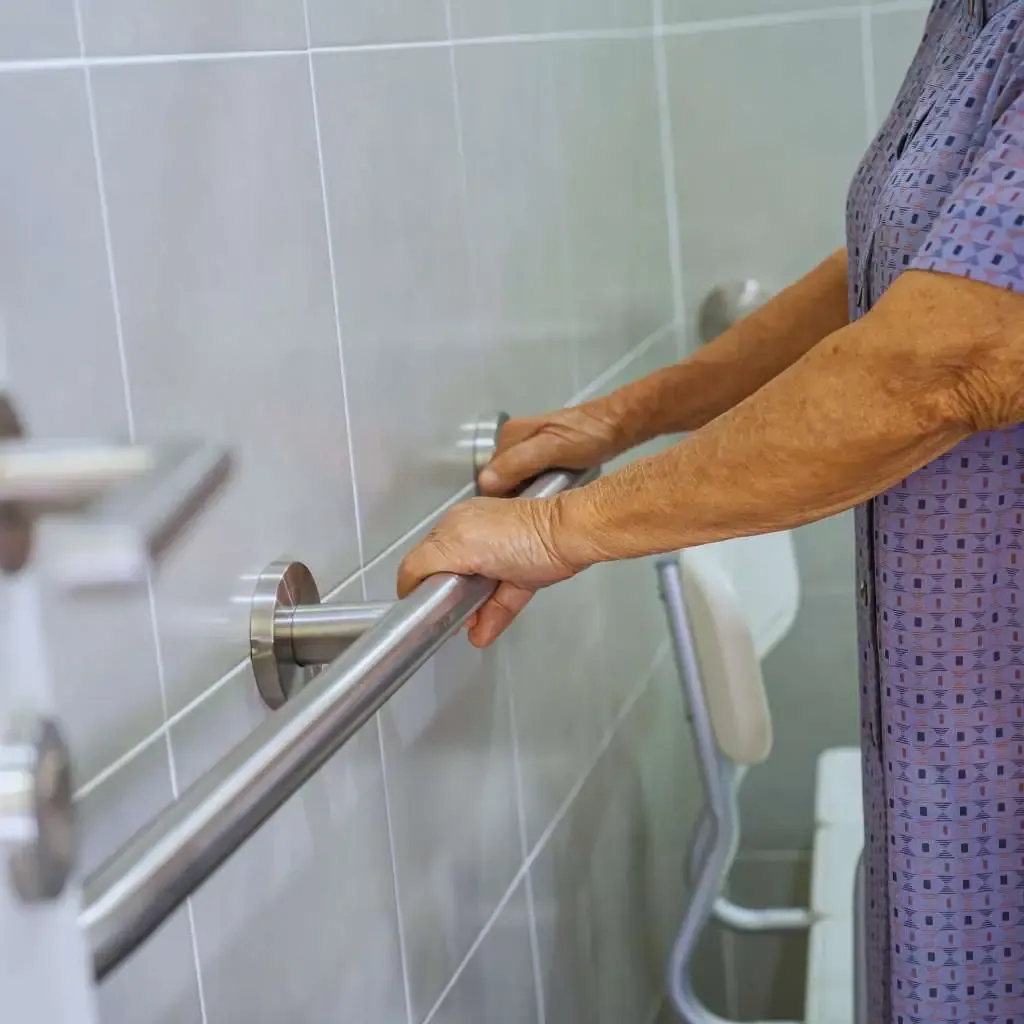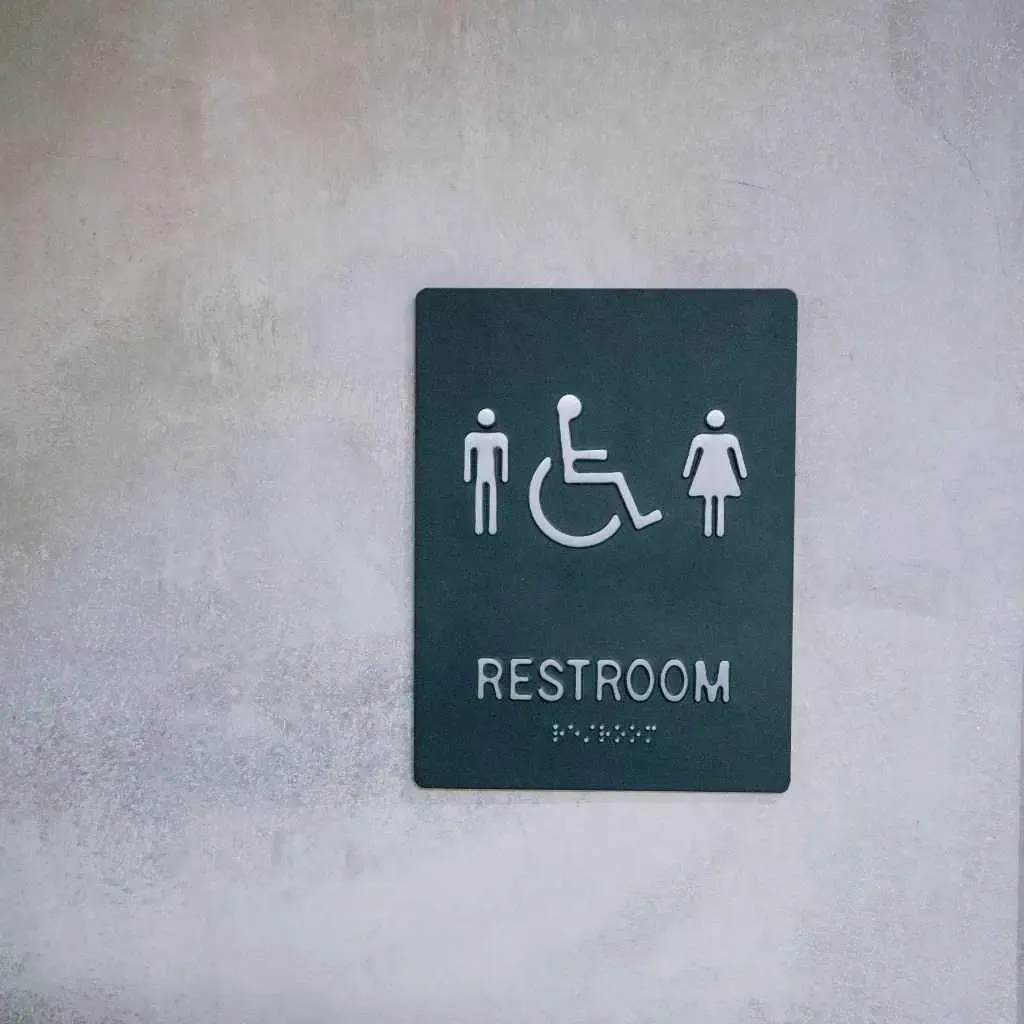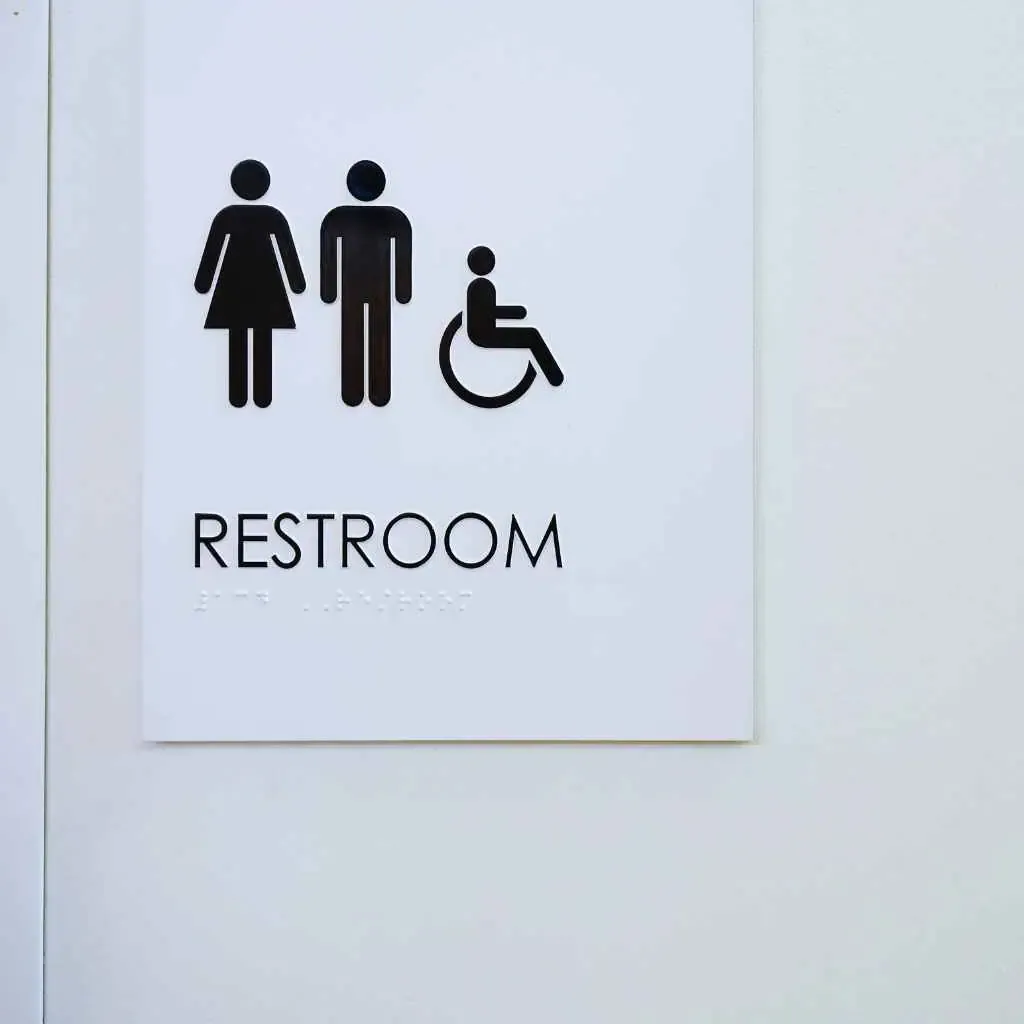California ADA Bathroom Requirements: Full Guide for Public & Commercial Spaces
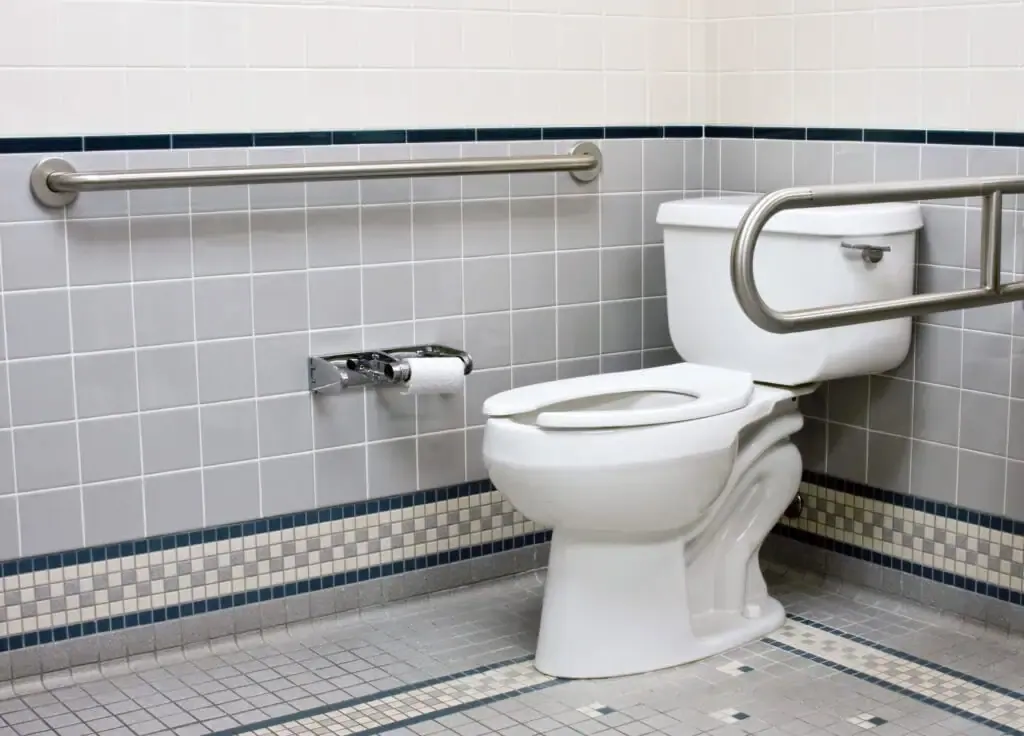
ADA bathroom compliance in California means meeting federal ADA rules and California Title 24 accessibility codes. This guide explains what property owners, business managers, and contractors need to know to ensure every public or commercial restroom is legally compliant, safe, and accessible.
Key Facts for Compliance at a Glance
Required by law in all public and commercial buildings
Governed by 2010 ADA Standards, CA Title 24, and enforced by DSA
Applies to restaurants, retail, offices, schools, gyms, and more
Non-compliance fines start at $4,000 per violation
Certified Access Specialists (CASp) conduct official inspections
Why Is ADA Compliance In Public And Commercial Bathrooms Important?
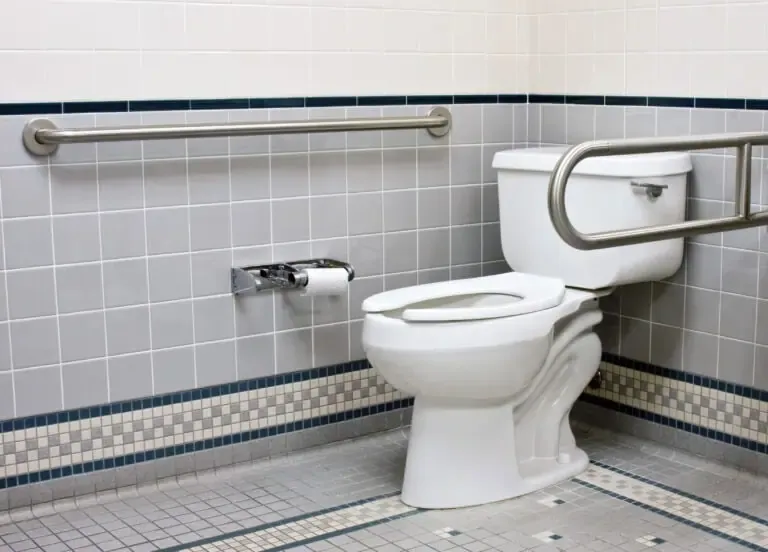
ADA bathroom compliance ensures that facilities are accessible, inclusive, and safe for individuals with disabilities. It’s not just about avoiding fines—it’s about providing equal access. An ADA-compliant bathroom provides safe, unobstructed, and equal access for people with disabilities. It follows both federal ADA standards and California’s stricter Title 24 code.
Legal and Financial Reasons
Federal law (ADA) and California law (Unruh Act) mandate accessibility
Lawsuits and fines: Up to $4,000 per violation plus legal fees
Permit issues: Non-compliance may stall remodels or new builds
Social and Business Value
Ensures dignity and independence for all users
Expands customer base and improves reputation
Reduces liability and improves building resale value
Is Your Public Or Commerical Bathroom ADA Compliant?
Contact Us For A Free Quote.
Which Facilities Must Comply?
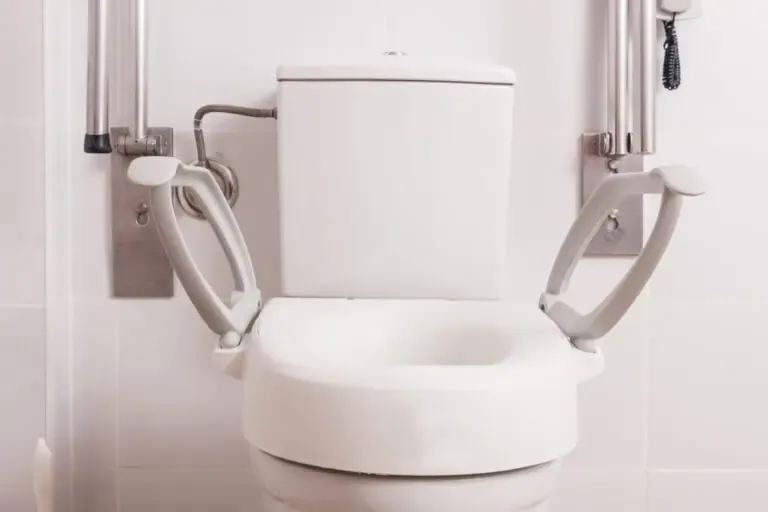
All public and commercial buildings must meet ADA bathroom standards. This includes:
Retail stores
Restaurants and cafes
Offices (even private ones with public access areas)
Medical and dental clinics
Hotels and motels
Gyms and fitness centers
Schools and libraries
Apartment common areas
No public facility is exempt, regardless of size or age.
What Are ADA Bathroom Requirements in California?
Turning radius: 60-inch diameter clear space
Sink height: Max 34 inches from floor
Toilet placement: 16–18 inches from wall to centerline
Grab bars: Mounted 33–36 inches high (side and rear bars required)
Door width: Min 32 inches clearance
Door swing: Must not obstruct clear floor space
Signage: Braille and tactile text, mounted 48–60 inches high
Is Your Bathroom ADA Compliant?
California vs Federal ADA Standards: What’s the Difference?
Title 24 Requirements That Go Beyond Federal ADA
California’s building code adds additional rules, such as:
Toe clearance required under lavatories
Faucet handles must be operable with one hand (no tight grasping)
More specific signage guidelines (wording, font size)
Insulated pipes under sinks to prevent burns
ADA Bathroom Requirements by Fixture Type
Toilet Compartment (Stall) Requirements
60×56 inches (wall-mounted) or 59×60 inches (floor-mounted)
Rear and side grab bars required
Toilet paper dispensers must be within reach (7–9 inches in front of toilet)
Lavatories and Mirrors
Maximum sink height: 34 inches
Minimum knee clearance: 27 inches high, 30 inches wide, 11–25 inches deep
Bottom of mirror: Max 40 inches above floor
Urinals, Showers, and Baby Changing Stations
Urinal rim: Max 17 inches from floor
Showers: Must include grab bars, seat, and accessible controls
Baby changing stations: Reach range and clear floor space required
New Technologies and Accessible Fixture Innovations
Motion-activated faucets
Touch-free soap dispensers
Voice-assisted or push-button doors
Smart toilets with adjustable heights
ADA-Compliant Layout & Dimensions Checklist
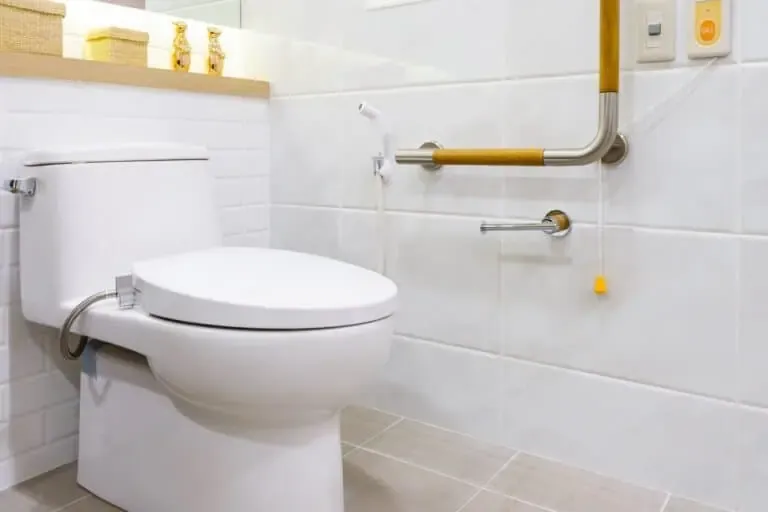
Layout Planning Guidelines
60″ turning radius for wheelchairs
32″ minimum door clearance
2% maximum slope in any direction
18″ space beside toilet for side transfer
Fixtures must not obstruct access paths
Design Tips for Better Accessibility
Use non-slip flooring
Install contrasting colour fixtures for visibility
Plan for natural lighting and acoustic considerations
Choose durable, easy-to-maintain materials
When Are ADA Bathrooms Legally Required?
New Construction vs Renovation
Triggered by new permits, remodels, tenant improvements
Applies to all areas accessible by public or employees
“Readily Achievable” Modifications for Older Buildings
Updates must be made if feasible without financial/structural hardship
Property owner must document efforts and constraints
ADA Signage and Labeling Requirements
Two signs required in California: on door and adjacent wall
Includes tactile letters, Braille, and pictograms
Height: 48–60 inches to bottom of sign
Use non-glare, high-contrast materials
Common ADA Bathroom Violations in California
Incorrect grab bar height or placement
No 60″ turning radius
Door swings into required clear floor space
Missing or improper Braille signage
Exposed plumbing without insulation
How to Retrofit Existing Bathrooms for ADA Compliance
Priorities in Bathroom Retrofits
Toilet clearance and repositioning
Install or adjust grab bars
Reconfigure sink and faucet placement
Add compliant signage
Retrofit Cost Estimate
$3,000 to $15,000 depending on layout, slope, and fixture type
What Are the Penalties for Non-Compliance?
$4,000 minimum fine per violation under Unruh Civil Rights Act
Lawsuits by individuals or advocacy groups
Mandatory upgrades required for building permits
Possible DSA investigations and delay
Who Enforces ADA Compliance in California?
California Division of the State Architect (DSA)
Certified Access Specialist (CASp) inspectors
Local city/county building departments
Civil rights attorneys (private lawsuits)
Internal Bathroom ADA Compliance Checklist
60″ turning space
Toilet placement (16–18″ from wall)
Grab bar placement and height
Sink height (max 34″)
Insulated pipes
Mirror height (≤ 40″)
Door width (min 32″)
Proper signage (Braille + tactile text)
Expert Answers to Related Questions
Are single-user restrooms subject to ADA rules?
Yes. ADA and Title 24 apply to all public restrooms, single- or multi-user.
Can you be fined if your restroom is only slightly non-compliant?
Yes. Even minor violations can result in lawsuits and DSA citations.
What businesses are exempt from ADA restroom rules?
None. All publicly accessible facilities must comply, with very rare exceptions for private-use-only staff restrooms.
PRO TIP!
Ensure at least 60 inches of clear maneuvering space around ADA bathroom fixtures to enhance usability and safety for wheelchair users.

Emily Johnson
Certified Access Specialist (CASp) Inspector
What’s the Best Way to Ensure Your Bathrooms Are Compliant?
Schedule a CASp inspection to identify gaps
Get pre-construction plan reviews
Conduct post-construction verifications
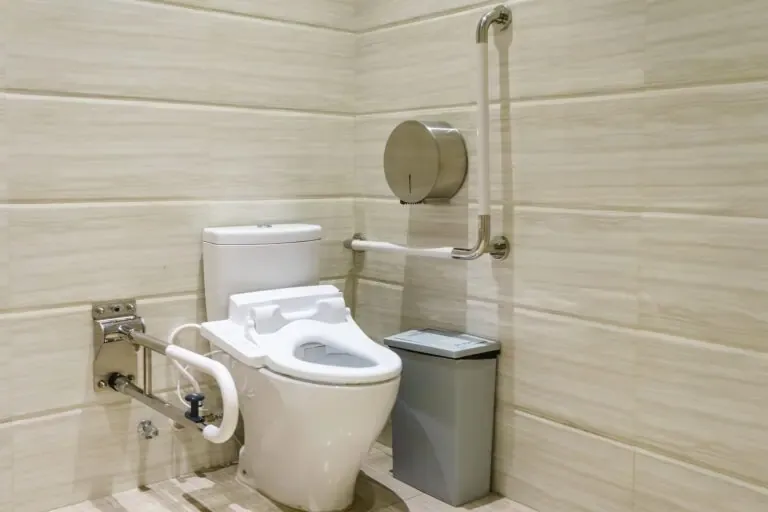
Final Advice for California Property Owners
Don’t wait for a lawsuit or permit denial. ADA bathroom compliance isn’t just legally required—it’s a smart way to protect your investment, support inclusion, and improve your building’s usability.
Start with a CASp inspection, update layout plans, and use this guide as a working checklist
Ensure your public or commercial bathroom meets ADA standards. Contact us now!
Need to get compliant? Hire one of our CASP's!
Enter your info below and one of our friendly consultants will get back to you.

Written by Emily Johnson
Emily Johnson is a Certified Access Specialist (CASp) Inspector and is passionate about making spaces accessible for all. With over 10 years of experience and degrees in Civil Engineering and Architecture, she inspires others while championing ADA awareness.
RECENT POSTS
CATEGORIES
Get a free quote today!
By clicking “Submit”, you are signing up to receiving emails from us. You can unsubscribe whenever you like. SMS rates may apply.
Want To Know More About ADA Accessibility And How To Get Compliant?
Check out our blog!

